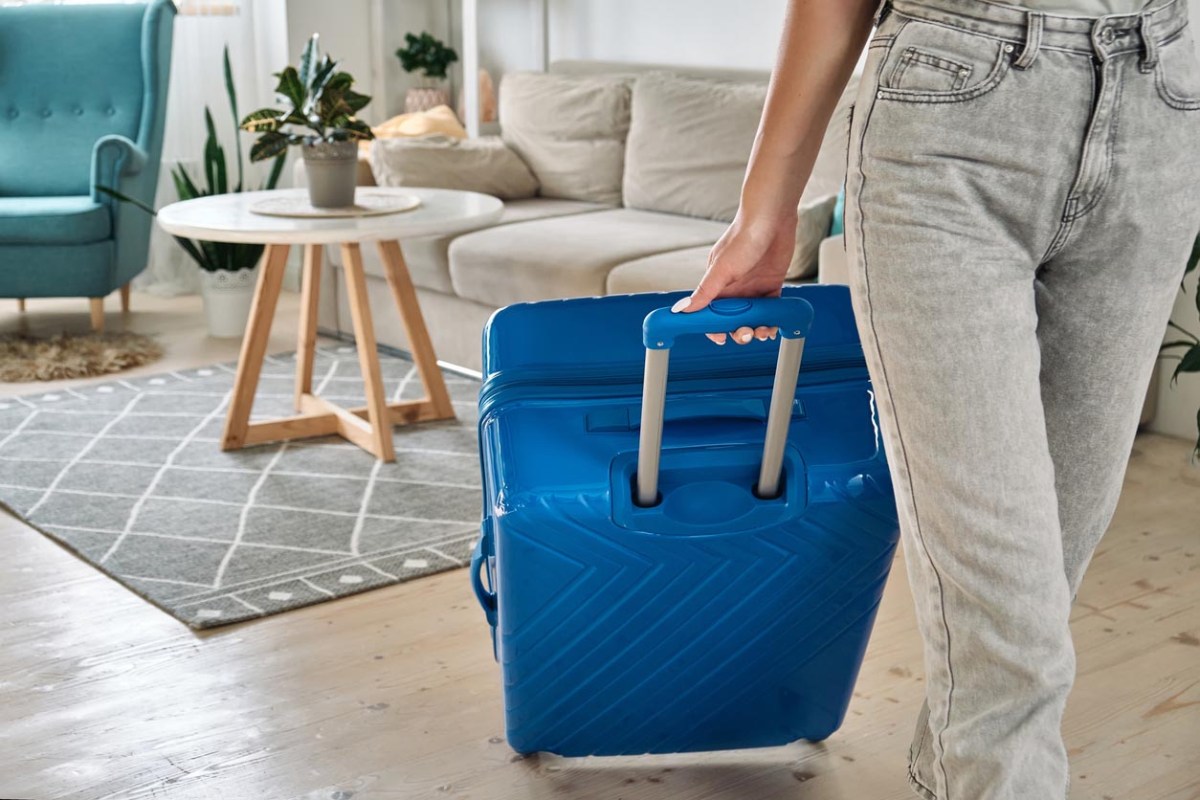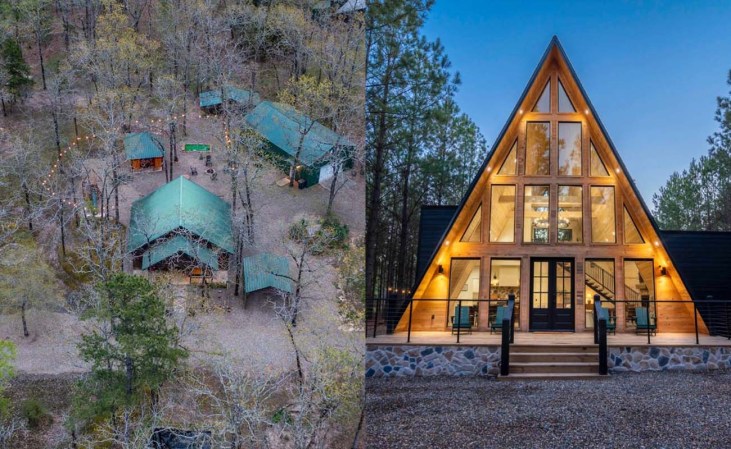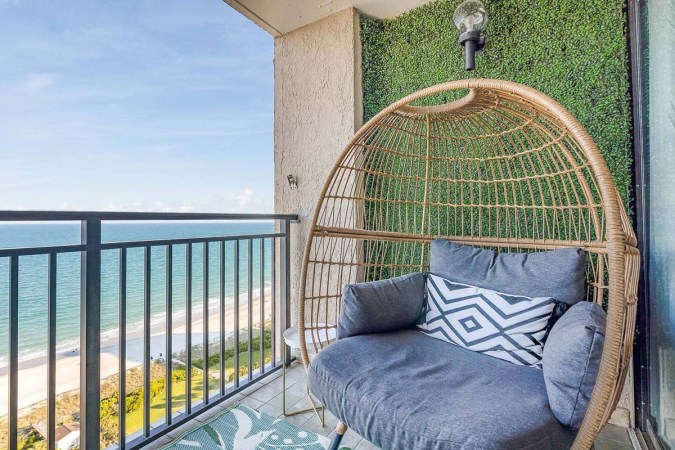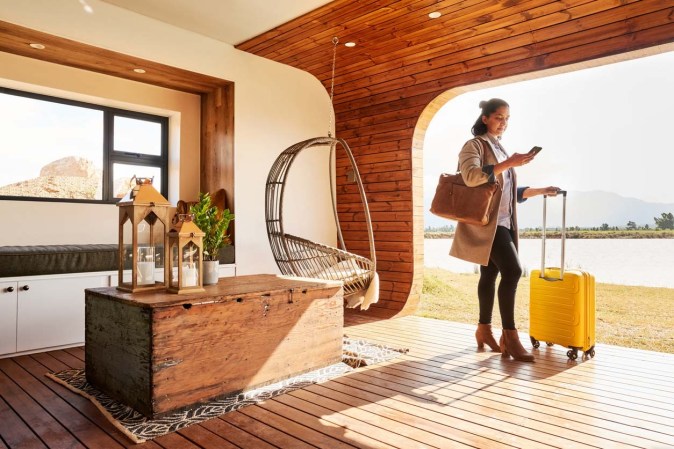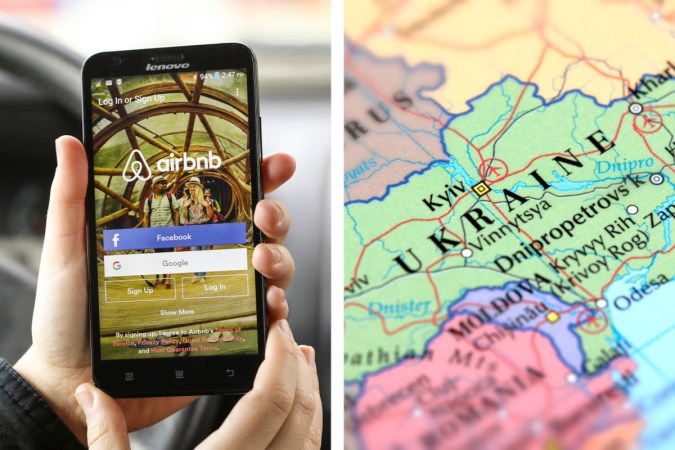We may earn revenue from the products available on this page and participate in affiliate programs. Learn More ›
Airbnb has announced major changes to its policies that will take effect between April and June. These policies will affect both guests and hosts, and they affect two key areas of concern: security measures and cancellations.
The company recently announced its new stance on indoor security cameras on its website: “Airbnb is banning the use of indoor security cameras in listings globally as part of efforts to simplify our policy on security cameras and other devices and to continue to prioritize the privacy of our community.”
Previously, indoor cameras were allowed in common areas such as hallways and living rooms as long as listings disclosed their use (at no point were they allowed in more “private” areas such as bathrooms and bedrooms). Indoor cameras, where they were used, had to be clearly visible. However, there have been known incidents of guests finding hidden cameras, much to their horror and the horror of Airbnb users everywhere. While these incidents are not considered common, and the number of hosts using indoor cameras is relatively small, the company’s new stance may help travelers feel more at ease. Airbnb’s Global Head of Community Policy and Partnerships, Juniper Downs, said, “Our goal was to create new, clear rules that provide our community with greater clarity about what to expect on Airbnb. These changes were made in consultation with our guests, Hosts, and privacy experts, and we’ll continue to seek feedback to help ensure our policies work for our global community.”
Airbnb’s stance on outdoor security measures have also shifted slightly. Some devices that are effective in keeping guests and rentals secure continue to be allowed. Such devices include video doorbells and decibel monitors. However, hosts will need to clearly disclose their presence and location in listings, and they are not allowed to use them in indoor settings or in outdoor settings where there is a greater amount of privacy expected (such as outdoor saunas or showers).
The updated security policy goes into effect April 30 to allow time for hosts to make their rentals compliant.
“These changes were made in consultation with our guests, Hosts, and privacy experts, and we’ll continue to seek feedback to help ensure our policies work for our global community.”
—Juniper Downs, Global Head of Community Policy and Partnerships
That’s not the only change that will affect both guests and hosts in the coming months. The company’s existing Extenuating Circumstances Policy will change to be called the Major Disruptive Events Policy to make it easier for both guests and hosts to receive support, including getting a refund and making stay cancellations, if extreme conditions that include natural disasters, government travel restrictions, or weather events were to occur.
The company’s announcement explains the change: “Now, the policy will explicitly apply to foreseeable weather events, like a hurricane during hurricane season, that result in another covered event happening, like a government travel restriction or large-scale outage of essential utilities. This means guests with eligible reservations can cancel and receive a refund and Hosts can cancel without fees and related consequences.”
Downs added why the change is a move in the right direction for all parties, stating, “The changes to this policy, including its new name, were made to create clarity for our guests and Hosts and ensure it’s meeting the diverse needs of our global community. Our aim was to clearly explain when the policy applies to a reservation, and to deliver fair and consistent outcomes for our users. These updates also bring the policy in line with industry standards.”
The updated policy also allows for mid-trip cancellations. However, it’s worth noting that the policy doesn’t apply to all circumstances and situations. Guests and hosts can familiarize themselves with the new policy on Airbnb’s website. It will apply to all reservations taking place on or after June 6.
The company’s changes can certainly make travelers feel more at ease, but Airbnb may not be the best short-term rental option for everyone. Airbnb fees can be high, and depending on the area, costs can be as high as what a hotel would cost. Airbnb rentals, however, can offer a level of personality and character that can make for a unique experience. There are many Airbnb alternatives to choose from, but with millions of homes across the globe and proactive policy changes that benefit all, travelers may want to continue considering Airbnb.

